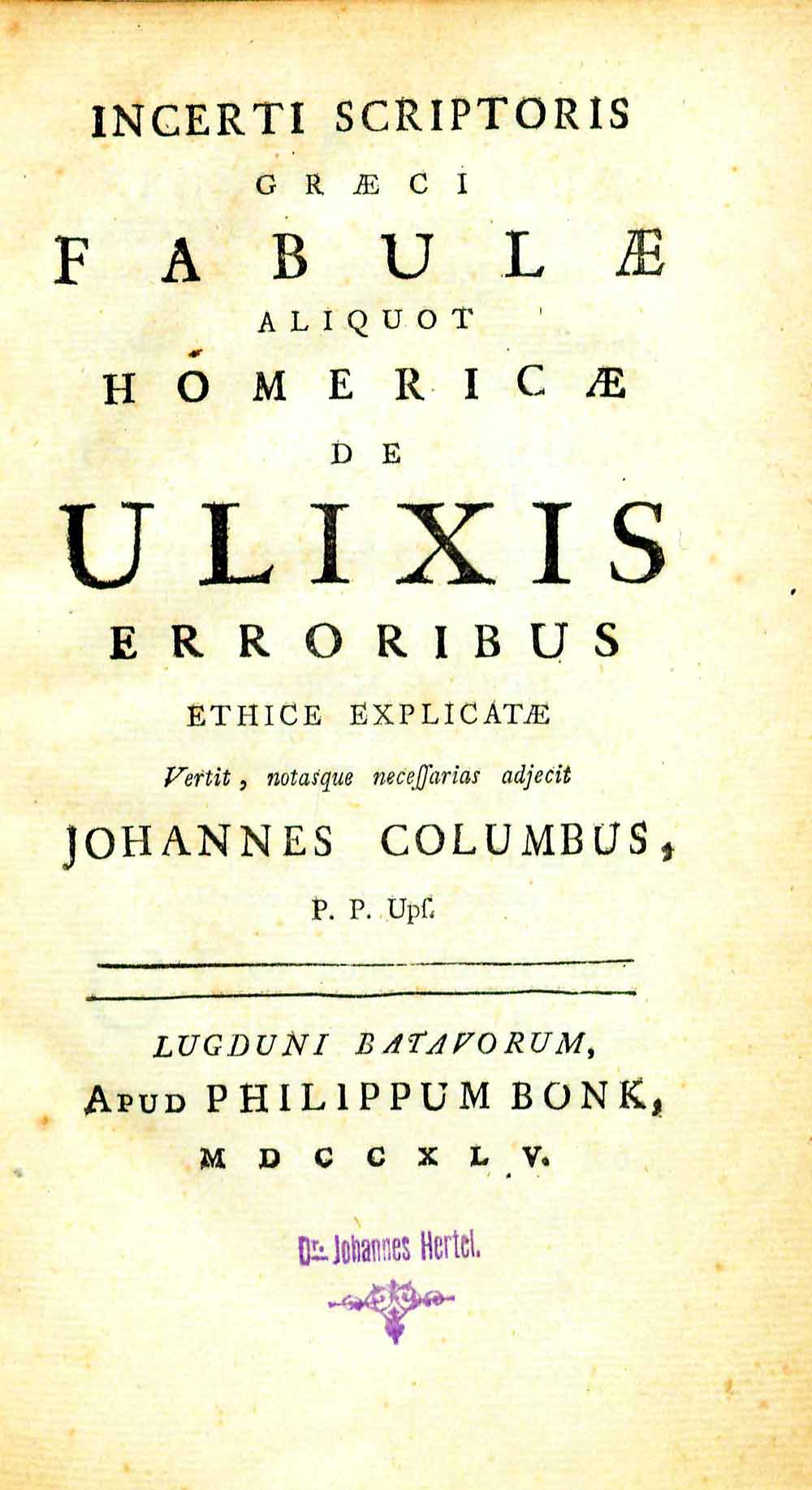Incerti Scriptoris Graeci Fabulae Aliquot Homericae de Ulixis Erroribus
by Anonymous
| Incerti Scriptoris Graeci Fabulae Aliquot Homericae de Ulixis Erroribus, Ethice Explicatae | |
|
Title page from Incerti Scriptoris Graeci Fabulae Aliquot Homericae de Ulixis Erroribus, Ethice Explicatae, George Wythe Collection, Wolf Law Library, College of William & Mary. | |
| Author | Homer; Johannes Columbus |
| Published | Lugduni Batavorum: Apud P. Bonk |
| Date | 1745 |
| Language | Greek text and Latin translation on facing pages; subsequent notes chiefly in Latin |
| Volumes | 1 volume set |
This book is a collection of “an anonymous Greek writer’s allegories on the wanderings of Ulysses” or Odysseus.[1] This work was given to George Wythe by Thomas Jefferson in 1787. Jefferson wrote to Wythe from Paris on September 16th and listed it as one of many books being shipped to him separately.[2] Jefferson bought the copy on August 16, 1785 from the bookseller Froullé in Paris.[3] This particular work is a translation by Johan Columbus (1640-1684) who was a Swedish humanist and Latin poetry professor at Upsala.[4] It was first published in 1678 and includes Columbus’ annotations as well as his Latin translations of the original Greek, which are laid out on opposite pages of the book.[5]
Evidence for Inclusion in Wythe's Library
Description of the Wolf Law Library's copy
Copy includes loose page of manuscript notes.
View this book in William & Mary's online catalog
